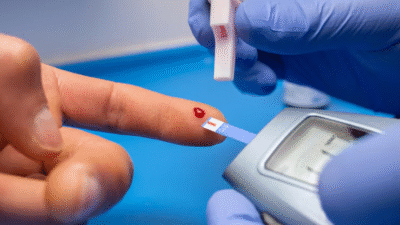
Meta Title: Top Digestive Disorders in 2025: Effective Management Tips
Meta Description: Discover the most common digestive disorders in 2025 and learn expert tips for effective digestion management and improving gut health.
Introduction
Digestive health plays a crucial role in overall well-being, yet digestive disorders continue to affect millions worldwide in 2025. If you’re experiencing persistent digestive problems symptoms like bloating, abdominal pain, or irregular bowel movements, you’re not alone. Understanding common digestive disorders in 2025, their symptoms, and how to manage them effectively can empower you to take control of your gut health.
In this comprehensive guide, we will explore the most prevalent digestive diseases in 2025, share expert digestive health tips, and offer practical advice for effective digestion management. Whether you’re battling irritable bowel syndrome (IBS), acid reflux, or other digestive issues, this article will provide you with actionable strategies to improve your digestive wellness in 2025.
Understanding Top Digestive Disorders in 2025 in 2025
Digestive disorders encompass a wide range of conditions that affect the digestive tract, including the esophagus, stomach, intestines, liver, pancreas, and gallbladder. Below are some of the most common digestive diseases in 2025 that people face today:
1. Irritable Bowel Syndrome (IBS)
IBS is a chronic condition characterized by abdominal pain, cramping, bloating, and changes in bowel habits such as diarrhea or constipation. It affects up to 10-15% of the global population.
- Digestive problems symptoms: abdominal discomfort, gas, irregular stools.
- Managing IBS: Dietary changes like a low-FODMAP diet, stress management, and medications prescribed by healthcare providers.
2. Gastroesophageal Reflux Disease (GERD) / Acid Reflux
GERD occurs when stomach acid frequently flows back into the esophagus, causing heartburn and discomfort.
- Symptoms: Heartburn, chest pain, regurgitation.
- Management: Avoiding trigger foods, eating smaller meals, elevating the head while sleeping, and medications like proton pump inhibitors.
3. Inflammatory Bowel Disease (IBD)
IBD includes Crohn’s disease and ulcerative colitis, which cause chronic inflammation of the digestive tract.
- Symptoms: Diarrhea, weight loss, fatigue, abdominal pain.
- Management: Medication, diet modifications, and sometimes surgery.
4. Celiac Disease
An autoimmune disorder triggered by gluten consumption leading to damage in the small intestine.
- Symptoms: Diarrhea, fatigue, anemia.
- Management: Strict gluten-free diet.
5. Gallstones and Gallbladder Disease
Gallstones can block bile flow, causing pain and digestive issues.
- Symptoms: Intense abdominal pain, nausea.
- Management: Diet changes, surgery if necessary.
6. Constipation and Hemorrhoids
Chronic constipation affects many and can lead to painful hemorrhoids.
- Symptoms: Infrequent bowel movements, pain.
- Management: Increased fiber intake, hydration, exercise.
Digestive Health Tips for Effective Management

Managing digestive disorders in 2025 requires a holistic approach that integrates diet, lifestyle, and medical care. Here are proven digestive health tips to support your gut health:
1. Adopt a Balanced Diet Rich in Fiber
Fiber supports digestion and helps regulate bowel movements. Include fruits, vegetables, whole grains, and legumes in your diet.
- Benefits: Prevents constipation, promotes healthy gut bacteria.
- Note: Increase fiber gradually to avoid bloating.
2. Stay Hydrated
Water helps dissolve fats and soluble fiber, aiding digestion.
- Aim for 8-10 glasses daily.
3. Regular Exercise
Physical activity stimulates intestinal muscles, aiding digestion and reducing constipation risk.
- Moderate exercise like walking or yoga can be very effective.
4. Manage Stress
Stress negatively impacts digestive health and can trigger flare-ups in conditions like IBS.
- Techniques: Meditation, deep breathing, mindfulness.
5. Avoid Trigger Foods
Identify and limit foods that worsen your symptoms, such as spicy foods, caffeine, alcohol, and fatty meals.
6. Eat Smaller, Frequent Meals
Eating smaller portions more frequently can reduce acid reflux and improve digestion.
7. Avoid Smoking and Excessive Alcohol
Both irritate the digestive tract and increase disease risk.
How to Improve Digestion: Practical Steps
- Chew food thoroughly: Helps break down food and eases the digestive process.
- Don’t rush meals: Eating slowly improves digestion and satiety.
- Probiotics and Prebiotics: Consider foods or supplements that promote beneficial gut bacteria.
- Sleep Well: Poor sleep disrupts digestion and gut microbiome balance.
Real-World Example: Managing IBS Successfully
Sarah, 34, struggled with IBS symptoms for years — bloating, cramps, and unpredictable bowel habits. After consulting a gastroenterologist, she adopted a low-FODMAP diet, practiced yoga daily, and used prescribed medication. Within months, her symptoms reduced significantly, improving her quality of life.
2025 Digestive Health Guide: Emerging Trends & Research
- Microbiome Research: Scientists continue to explore gut bacteria’s role in health and disease.
- Personalized Nutrition: Tailoring diet plans based on genetic and microbiome analysis.
- Non-Invasive Diagnostics: New tools for easier and faster detection of digestive disorders.
Outbound Links
For further reading and trusted information, visit:
- Mayo Clinic – Digestive Health
- National Institute of Diabetes and Digestive and Kidney Diseases (NIDDK)
- WebMD – Digestive Disorders
FAQ Section
1. What are the most common digestive disorders in 2025?
The most common include IBS, GERD, IBD, celiac disease, gallbladder disease, and chronic constipation.
2. How can I tell if I have a digestive disorder?
Symptoms like persistent abdominal pain, bloating, diarrhea, constipation, and heartburn warrant a medical evaluation.
3. Are lifestyle changes effective for managing digestive disorders?
Yes, diet, exercise, stress management, and avoiding triggers are crucial components of effective digestion management.
4. When should I see a doctor for digestive problems?
If symptoms persist longer than a few weeks, worsen, or include bleeding, weight loss, or severe pain, seek medical advice immediately.
Conclusion
Digestive disorders can significantly impact your quality of life, but with the right knowledge and management strategies, you can take control of your digestive wellness in 2025. Prioritize a fiber-rich diet, stay hydrated, manage stress, and seek medical care when necessary. Share your experiences or ask questions below, and subscribe to our newsletter for more health tips.




